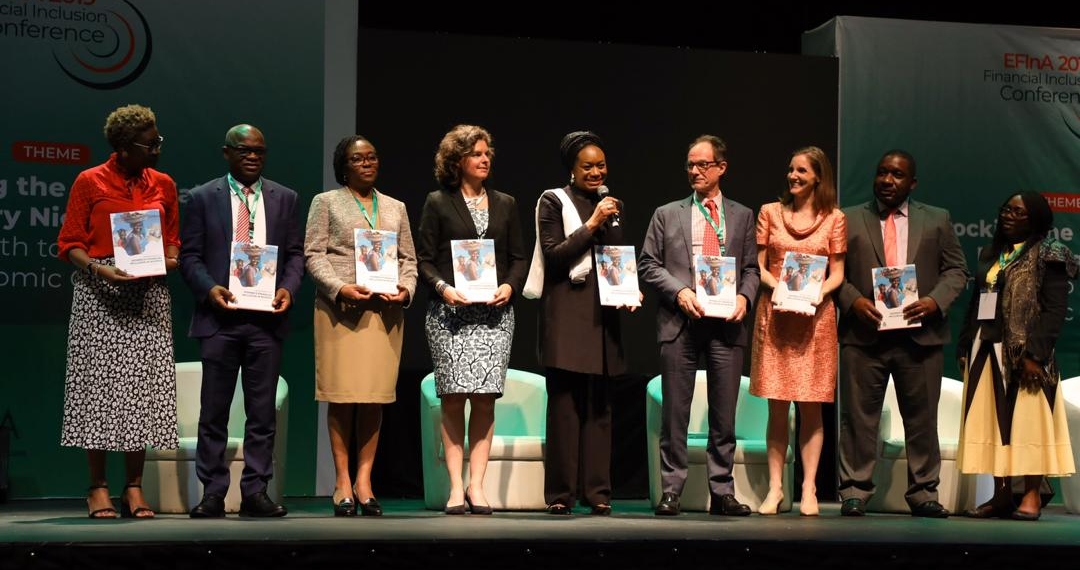The Central Bank of Nigeria has said all efforts is geared towards meeting the 2020 targets of the National Financial Inclusion Strategy which seeks to reduce financial exclusion to 20% of the adult population in the country.
This was disclosed by Joseph Attah, Head Financial Inclusion Secretariat, CBN while speaking to journalists at the Financial Inclusion Conference organized by Enhancing Financial Innovation and Access, EFInA.
The conference which was themed, “Unlocking the Potential in Every Nigerian : The Path to Inclusive Economic Growth” witnessed the launch of a report on the gender gap in financial inclusion, with the title “Assessment of Women’s Financial Inclusion in Nigeria.”
Joseph Attah explained that though it seems impossible to achieve the 20% financial exclusion rate in 2020, the new mechanisms put in place by the CBN has yielded tremendous and positive results, which he believes would be sustained to ensure the target is attained before end of 2020.
Attah explained that, “currently, there is 36.8% of adult Nigerians excluded from financial services and given that by the end of year 2020, we’re supposed to reach 20% exclusion rate, which is about 16.8% difference for us to cover. It might look like a very long way to go but we have managed to put in place appropriate structures including coordination arrangement, mobilization of stakeholders and we believe very strongly that all the necessary structures are in place and we’re optimistic that by the end of next year, we will be blessed to meet the goal of 20% exclusion rate in Nigeria.”
He noted that the CBN has set up a Financial Inclusion States Steering committees with the mandate to close the exclusion gap in each state before the end of 2020.
Attah butressed that, “just last week, we engaged in Account Opening week where we selected six most excluded states, one state per each geo political zone, we mobilized all the banks in Nigeria, the state governors of the respective states, Financial Service Providers and their agents, NIPOST and other members of the financial inclusion states steering committee. We were able to identify some critical centres in those states like markets and agricultural areas where there are clusters to make sure those areas are manned and doors are opened for people to open accounts.
“Turn out was impressive and responses were massive. We’re currently collating the number of accounts that were opened and the BVNs that were generated. We’re using this as a platform to multiply implementation by next year, we might decide to do it across the federation and we believe with that, we will be able to achieve the exclusion rate by 2020.”
He also noted that the Bank has gotten approval for Youth Corp members to be posted to financial institutions where they can reach people in various communities and link them to how to access to financial services.
Speaking on Persons with Disabilities and access to financial services, Attah said 2% of the special intervention fund of the CBN called Micro, Small and Medium Development fund is dedicated to enhancing the financial inclusion access of PWDs.
While discussing the key findings of the Assessment of Women’s Financial Inclusion in Nigeria, Ashley Immanuel, Head of Programmes, EFInA disclosed that low income, education and lack of trust in FSPs are some of the key factors widening the gender financial exclusion gap.
Immanuel noted that the report revealed that marital status and phone ownership are also drivers of lack of access to financial services either to formal or informal FSPs.
It was recommended that FSPs and other stakeholders explore options for improving the commercial viability of serving excluded women and where possible, products and services should be designed to increase income, education and/or trust in FSPs.

